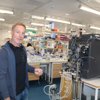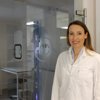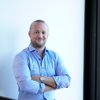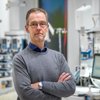Fritextsökning
Artiklar per år
Innehållstyper
-

Samuel Lagercrantz: We are currently seeing medical breakthroughs in these areas
Samuel Lagercrantz, Editor in Chief of Life Science Sweden, lists three medical fields in which we are currently seeing major breakthroughs and two fields in which we can see some long-awaited positive developments.
-

Mathias Uhlén’s protein atlas is recognised as a global resource
The Human Protein Atlas is the first database in Sweden to be designated a Global Core Biodata Resource. According to Mathias Uhlén, this is a quality hallmark and an opportunity for additional collaborations.
-

Business Sweden: “Companies have a lot to offer in data-driven precision medicine”
Data-driven precision medicine can potentially solve major healthcare problems, states Business Sweden in a new report on the subject.
-

The art of building a biologic drug
The first biosimilar from Xbrane Biopharma was launched earlier this year, and several more are under development at the company’s facility in Solna, Sweden. “We do everything in-house ‒ from DNA fragments to a final process,” says David Vikström, Chief Technology Officer at the company.
-

Setback for Moderna in patent dispute with mRNA competitors
Moderna has suffered a setback in a patent battle against their worst competitors in covid vaccines, Biontech and its partner Pfizer.
-

Larm om vaccinbrist efter utbrott av difteri i Västafrika
Ett allvarligt utbrott av difteri har drabbat Västafrika. Nu varnar Läkare utan gränser för brist på läkemedel och vaccin mot sjukdomen.
-

Eli Lilly to build a USD 2.5-billion plant in Germany
US-based Eli Lilly is planning a huge investment of USD 2.5 billion, equivalent to around SEK 26.5 billion, in a new production facility in Alzey, Germany.
-

Novo Nordisk to invest billions in Danish manufacturing facilities
Danish pharmaceutical giant Novo Nordisk is investing DKK 42 billion, equivalent to around SEK 65 billion/EUR 5.6 billion, in its manufacturing facilities in Kalundborg, Denmark.
-

The Swedish Academy of Sciences: “We have too many researchers”
Sweden does not need more researchers, but it does need better ones. According to the Royal Swedish Academy of Sciences, funding should be distributed to favour excellence.
-

High biological age is linked to a higher risk of dementia and stroke
It is a well-known fact that people age at different rates, and a recent study at the Karolinska Institute suggests that people with a biological age higher than their actual age are significantly more likely to suffer from dementia and stroke.
-

Founder of Bioarctic, Lars Lannfelt, is honoured: “I want to create something for the future”
It´s like a scientist’s dream: to be the world’s first with a drug that genuinely affects one of our major diseases. Lars Lannfelt and his company Bioarctic have achieved just that, and they are thus making a significant contribution to the history of Swedish medicine. He is now being awarded the Research!Sweden Award 2023.
-

High-tech companies are increasingly focusing on health
Tech companies have been taking an interest in healthcare for many years, and this interest seems to be increasing. “It’s not a sudden shift in trend, it’s more about them advancing their positions,” says Anna Lefevre Skjöldebrand, CEO of Swedish Medtech.
-

The physician at the tech giant: “Observations in the emergency room made my mind up”
When Nasim Farrokhnia was in third grade at school in Tehran, the capital of Iran, her father gave her a book about Marie Curie, which soon became her favourite book. Perhaps her interest in science was born there and then, as science and new technology
-

Rickard Sandberg on this year’s Nobel Prize in Medicine: ”A key discovery”
The discovery that paved the way for the development of todays mRNA vaccines is the basis for this year’s Nobel Prize in Physiology or Medicine.
-

The first drugs to slow down Alzheimer’s – but what does it mean for patients?
New treatments for early Alzheimer’s are bringing hope to thousands of patients and their families. The question is, who will get the treatment, how will the right patients be found in time, and will the healthcare system’s resources be sufficient? Life
-

Marie Gårdmark: ”The situation is not satisfactory”
”The legislative tool-box is limited, but carrots in the form of longer exclusivity has already proven successful, this has for example increased registration of new products in rare diseases. But will it also work to increase access for all EU patients
-

Astra Zeneca’s Sweden CEO: “We have great faith in our portfolio”
It all started with a summer job as an operator at Astra’s chemical factory in Snäckviken, just outside Södertälje. More than three decades and countless different assignments later, Per Alfredsson, born and raised in Södertälje, is CEO of Astra Zeneca Sweden, which employs 7800 people in Södertälje, Stockholm and Gothenburg. “It was a very special feeling to be in charge of the entire organisation,” he says in an interview about his career and potential future blockbusters.
-

The Swedish government is to increase its investment in cancer care
The Swedish government wants to invest more in cancer and paediatric cancer care and proposes to allocate SEK 500 million per year for this purpose in the coming years.
-

Heidi Stensmyren is eager for new challenges in the biotech industry
Heidi Stensmyren has served as President of the Swedish Medical Association, held a managerial position at Karolinska University Hospital and is now Medical Director at a biotech company. “I’m curious and like to have influence, so I’ve often chosen management roles,” she says.
-

Life Science Sweden heads to the Oresund region! ‒ Hello there Michael Linnell
Life Science Sweden’s The Future of Swedish Danish Life Science and New Updates in Drug Formulation & Bioavailability meetings are coming up soon. We asked Michael Linnell, project manager for Life Science Sweden’s event portfolio, a few short questions.
-

Bioarctic granted Japanese patent for Parkinson’s disease candidate
Bioarctic has been granted a Japanese patent for its antibodies targeting Parkinson’s disease.
-

“Unfortunately, we are not strong when it comes to conducting clinical trials”
The number of company-initiated clinical trials conducted in Sweden has been declining in recent years. In mid-March, a government inquiry was presented that aimed to find answers and solutions to this downward trend. One of the proposals was a stable, sustainable and funded model for collaboration.
-

CROs in drug development: "We use our expertise to speed up the process
Consultancy firms have become an increasingly important part of drug development. “It’s a trend and a business model that works, and we see no indication that it will change,” says Helena Lüning of the industry organisation ASCRO.
-

A billion-dollar acquisition makes Novo Nordisk even bigger in obesity
Danish pharmaceutical giant Novo Nordisk acquires Montreal-based Inversago Pharma, which develops treatments for obesity and diabetes.